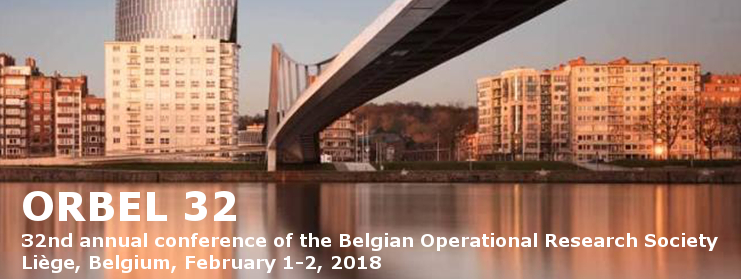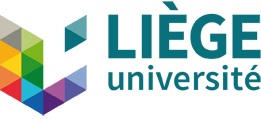| |
|
Key speakers

Prof. Michel Bierlaire
EPFL Ecole Polytechnique Fédérale de Lausanne
Bio: [Show]
[Hide]
Belgian, born in 1967, Michel Bierlaire holds a PhD in Mathematical Sciences from the Facultés Universitaires Notre-Dame de la Paix,
Namur, Belgium (University of Namur). Between 1995 and 1998, he was research associate and project manager at the Intelligent Transportation
Systems Program of the Massachusetts Institute of Technology (Cambridge, Ma, USA). Between 1998 and 2006, he was a junior faculty in the Operations
Research group ROSO within the Institute of Mathematics at EPFL. In 2006, he was appointed associate professor in the School of Architecture,
Civil and Environmental Engineering at EPFL, where he became the director of the Transport and Mobility laboratory. Since 2009, he is
the director of TraCE, the Transportation Center. From 2009 to 2017, he was the director of Doctoral Program in Civil and Environmental Engineering
at EPFL. In 2012, he was appointed full professor at EPFL. Since September 2017, he is the head of the Civil Engineering Institute at EPFL.
His main expertise is in the design, development and applications of models and algorithms for the design, analysis and management of transportation
systems. Namely, he has been active in demand modeling (discrete choice models, estimation of origin-destination matrices), operations research
(scheduling, assignment, etc.) and Dynamic Traffic Management Systems.
As of December 2017, he has published 113 papers in international journals (including Transportation Research Part B, the transportation journal
with the highest impact factor), 4 books, 39 book chapters,
170 articles in conference proceedings, 160 technical reports, and has given 187 scientific seminars. His ISI h-index is 25.
His Google Scholar h-index is 51.
He is the founder, organizer and lecturer of the EPFL Advanced Continuing Education Course "Discrete Choice Analysis:
Predicting Demand and Market Shares". He is the founder and the chairman of hEART: the European Association for Research in Transportation.
He is the Editor-in-Chief of the EURO Journal on Transportation and Logistics. He is an Associate Editor of Operations Research and of
the Journal of Choice Modelling. He is the editor of two special issues for the journal Transportation Research Part C. He has been member of the
Editorial Advisory Board (EAB) of Transportation Research Part B since 1995, of Transportation Research Part C since January 1, 2006, and of the journal
"European Transport" since 2005.
Title:
Modeling advanced disaggregate demand as MILP
Abstract:
Choice models are powerful tools to capture the detailed choice behavior of individuals, characterizing the demand at a disaggregate level. Although many such models are available in the literature, they are very rarely integrated in optimization models. The main reason is that they are non-linear, non-convex and often not available in closed form.
We propose a modeling framework that allows to represent (almost) any choice model as constraints for MILP. The talk describes the framework and illustrates its relevance on some examples.
Presentation slides (pdf)

Prof. Dominique Feillet
Ecole des Mines de Saint-Etienne and LIMOS
Head of the Logistics and Manufacturing Sciences department
Bio: [Show]
[Hide]
Dominique Feillet works as a Professor of Operations Research at Mines Saint-Etienne, a leading engineering
school in France. He received an engineering degree in Computer Sciences from ENSIMAG (Grenoble, France) and holds a
phD in Industrial Engineering from Ecole Centrale Paris (France). He joined Mines Saint-Etienne in 2008,
where he is head of the Department on Manufacturing Sciences and Logistics since 2013. He entered the LIMOS laboratory,
attached to the French National Center for Scientific Research (CNRS), in 2014 and is heading the research team
on Decision-making tools for Production and Logistics since 2015.
His primary research interest concerns the development of relevant discrete optimization models and methods with
regards to new practices in transportation and distribution. He is particularly interested in vehicle routing optimization,
but has also been involved in several collaborative projects with railway or shipping industries.
His research has resulted in more than 50 publications in first-rank journals like Transportation Science, EURO Journal on Transportation and Logistics, EJOR,
Networks or Computers & OR. He was finalist of the VEROLOG Solver challenge in 2014 and winner of the Scientific Prize of the EURO/ROADEF challenge in 2016.
He is associate editor of EJTL and member of the advisory board of Computers & OR. He is a former secretary of the French Operations Research association (ROADEF).
He has been involved in the organization of several national and international events as ROADEF'2003, NOW'2006, ROADEF'2010 or Odysseus 2015.
He was invited several times in summer schools to give talks on vehicle routing or column generation.
Title:
Vehicle routing problems with road-network information
Abstract:
Since the introduction of the Vehicle Routing Problem more than 50 years ago, routing is defined as "the process of selecting best routes in a complete graph". However, there are several situations where the abstraction of the road network into a complete graph (the so-called customer-based graph) is at best disputable, at worst can lead to a bad optimization of vehicle routes. In this presentation we will discuss about the possibility of considering more information from the road network. We will review the literature, detail several situations where additional information from the road network could be helpful and describe some consequences on exact or heuristic solution approaches.
Presentation slides (pdf)

Prof. Martin Savelsbergh
H. Milton Stewart School of Industrial & Systems Engineering, GeorgiaTech
Chair and Co-Director of Supply Chain & Logistics Institute
Bio: [Show]
[Hide]
Martin Savelsbergh is James C. Edenfield Chair and Professor at the H. Milton Stewart School of Industrial & Systems Engineering.
Martin is an optimization and logistics specialist with over 20 years of experience in mathematical modeling, operations research, optimization
methods, algorithm design, performance analysis, logistics, supply chain management, and transportation systems. He has published over 150 research
papers in many of the top optimization and logistics journals and has supervised more than 25 Ph.D. students. Martin has a track record of creating
innovative techniques for solving large-scale optimization problems in a variety of areas, ranging from supply chain master planning and execution,
to world-wide tank container management, to service network design, to production planning, and to vehicle routing and scheduling. Martin has given
presentations and short courses on optimization, transportation, and logistics in more than a dozen countries around the world.
Ongoing research projects that Martin is pursuing include innovations in last-mile delivery, advances in dynamic ride-sharing, methods for
multi-objective optimization, and dynamic management of time-expanded networks.
Martin Savelsbergh is the Editor-in-Chief of Transportation Science, the flagship journal of INFORMS in the area of transportation and logistics.
He has served as Area Editor for Operations Research Letters and as Associate Editor for Mathematics of Operations Research, Operations Research,
Naval Logistics Research, and Networks. Martin has served as president of the Transportation and Logistics Society of INFORMS and is an INFORMS Fellow.
Title:Recent Advances in Criterion Space Search Algorithms for Multi-objective Mixed Integer Programming
Abstract:
Multi-objective optimization problems are pervasive in practice. In contrast to single-objective optimization, the goal in multi-objective optimization
is to generate a set of solutions that induces the Pareto front, i.e., the set of all nondominated points. A nondominated point is a vector of
objective function values evaluated at a feasible solution, with the property that there exists no other feasible solution that is at least as good
in all objective function values and better in one or more of them. Recently, criterion space search algorithms, in which the search for the Pareto
front takes place in the space of the vectors of objective function values, i.e., the criterion space, have gained in popularity. These methods
exploit the advances in single-objective optimization solvers, since they repeatedly solve single-objective optimization problems. We will introduce
and discuss criterion space search algorithms for both pure and mixed multi-objective integer programs.
Presentation slides (pdf)
|
|








